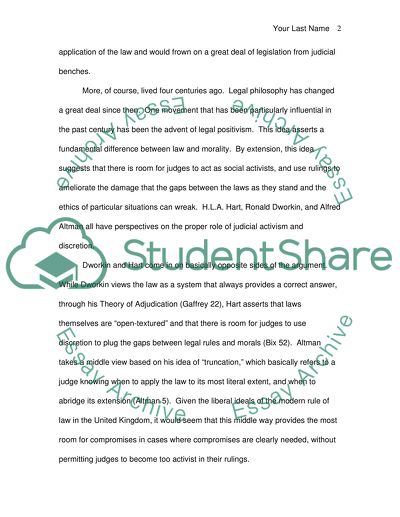Cite this document
(“Out of Hart, Dworkin and Altman, who provided the best understanding Essay”, n.d.)
Retrieved from https://studentshare.org/miscellaneous/1510195-out-of-hart-dworkin-and-altman-who-provided-the-best-understanding-of-judicial-discretion-what-implication-do-their-position-have-for-the-legitimacy-of-judic
Retrieved from https://studentshare.org/miscellaneous/1510195-out-of-hart-dworkin-and-altman-who-provided-the-best-understanding-of-judicial-discretion-what-implication-do-their-position-have-for-the-legitimacy-of-judic
(Out of Hart, Dworkin and Altman, Who Provided the Best Understanding Essay)
https://studentshare.org/miscellaneous/1510195-out-of-hart-dworkin-and-altman-who-provided-the-best-understanding-of-judicial-discretion-what-implication-do-their-position-have-for-the-legitimacy-of-judic.
https://studentshare.org/miscellaneous/1510195-out-of-hart-dworkin-and-altman-who-provided-the-best-understanding-of-judicial-discretion-what-implication-do-their-position-have-for-the-legitimacy-of-judic.
“Out of Hart, Dworkin and Altman, Who Provided the Best Understanding Essay”, n.d. https://studentshare.org/miscellaneous/1510195-out-of-hart-dworkin-and-altman-who-provided-the-best-understanding-of-judicial-discretion-what-implication-do-their-position-have-for-the-legitimacy-of-judic.


